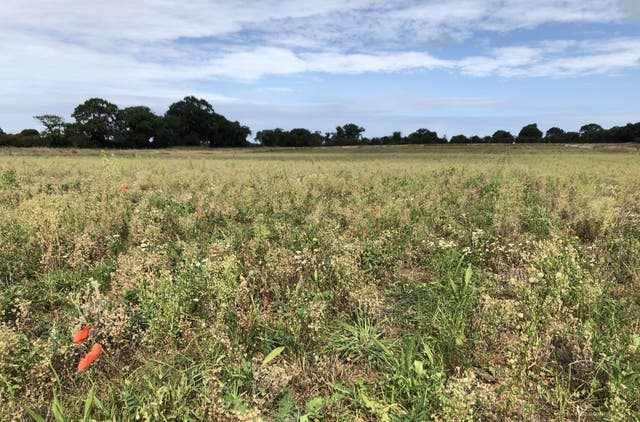Restoring nature is ‘investment’ in UK economy and society, leaders told
Natural England chairman Tony Juniper warns against being ‘blown off course’ in boosting nature as Cop15 biodiversity talks kick off in Montreal.

Restoring nature must be seen as a “sensible investment” in the UK’s economy and wellbeing, not a cost with no return, the head of Natural England has said.
Tony Juniper, chairman of the Government’s conservation agency, said more investment and a joined up approach is needed – from using flood defence funds for nature-based schemes to spending by housebuilders and water firms.
His comments come as the UK joins other countries in Montreal for the “Cop15” biodiversity talks to negotiate a new global deal to arrest the nature crisis.
A “high ambition coalition” of nations including the UK are pushing for a deal to halt and reverse declines in nature by 2030, with measures such as protecting 30% of land and seas by the end of the decade.
Mr Juniper, whose agency covers England, said a deal secured in Montreal would need to be translated into domestic action across the UK.
“Sometimes, especially during the cost-of-living crisis, you can see nature as being something which we’ll do later on – it’s nice, but it’s expensive, and at the moment we have other priorities.
“I think it’s going to be really important for leaders to remember that actually this is an investment in society, it’s not just a cost with no return, because the benefits we get from healthy nature are manyfold, and they are hugely important economically, and also for public health.”
Mr Juniper, a longstanding environmental campaigner before taking on the role at Natural England, said there are reasons for optimism.
“I’ve spent getting on for 40 years working on all of this, and it was generally the view across the public, in boardrooms, in many governments across the world, that the destruction of nature was kind of regrettable but it was the inevitable consequence of how we had to develop and achieve social goals.
“But I think that’s changing now. And people are beginning to see that actually looking after nature is one of the most sensible things we can do to promote economic stability and to look after people’s interests into the future,” he said.
But he warned of the danger of getting “blown of course” in the face of economic difficulties or falling into the “mistaken” trap of believing environmental measures are getting in the way of food security.
Mr Juniper said while addressing climate change is largely about fossil fuels, agriculture and food production is a key priority for tackling nature declines.

Farmers have been critical about a lack of clarity over the new scheme, while a review of the programme prompted concerns from environmentalists it is being delayed or watered down.
Mr Juniper said he is not worried about new plans to adapt the existing countryside stewardship scheme to deliver part of Elms, but will be working with Government on how to improve it.
The landscape-scale projects – with 22 pilot schemes already under way – are a “critical” part of helping nature recover in England, he added.
When it comes to funding for nature recovery, “more investment is needed, and not only more investment, but crucially, also more joined-up approaches”, he said.
Alongside farming payments, other resources could be aligned with nature recovery, including spending some of the flood risk reduction budget on nature-based solutions, and focusing the money being put into woodland expansion on high-quality wildlife habitats, he argued.
Water companies could see how investing in nature recovery can be a cost-effective way of being able to achieve business needs, such as water quality, and if builders invest in nature-rich environments, houses could be worth more, he suggested.

Mr Juniper said some of the existing protected area network is not in “great shape” – though there is ambition to improve it.
He also acknowledged landscape designations such as national parks and areas of outstanding natural beauty (AONBs) do not necessarily deliver for wildlife – though he said some have great projects to restore nature there.
And he said: “The older idea of drawing a line on the map and saying, ‘That’s got an official designation’ has been absolutely essential in getting us to where we are now, but it’s not sufficient.
“We’re going to need other tools on top, especially as we get into this phase now which is beyond conservation and into this agenda of nature recovery.”
He pointed to rewilding projects such as Knepp in West Sussex, schemes that become protected by “conservation covenants”, gravel pits restored to wetlands by minerals companies, and habitats created by developers under “biodiversity net gain” rules as potential areas to be included in the 30%.
And he said a key focus for Natural England in the wake of the Cop15 summit is driving forward a nature recovery network of sites, with a target to create 500,000 hectares of new wildlife habitat outside protected areas over 25 years.





